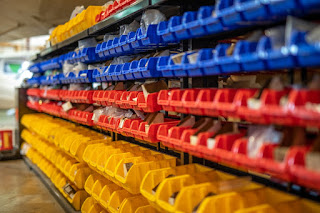The pursuit of wisdom in any walk of life quickly reveals that what you think you know is not nearly enough to get you to where you want to go. As I'm starting out in my football journey I challenged myself to reach out to those already working in various roles in football to answer a short list of questions. My goal wasn't to get answers but relevant perspectives on the game within the game.
Here is FC Python:
Here is FC Python:
How did your first opportunity in football come about?
Depends how loose we want to go with ‘in football’! I was fortunate to get an internship with performance analysis company Prozone (now STATS Perform), in a customer support role - essentially installing software and fixing it when it broke.
From there, I was able to learn loads about the data/video collection process and also from the analytics team about their line of work. Direction and encouragement from colleagues during my internship (particularly @counterattack9) led to starting to learn the skills needed in this area and subsequent opportunities a bit closer to football and, later on, sports media & marketing.
What attracted you to coding/analytics? What’s more intriguing now names or numbers?
Initially, it was seeing the work that was being done in the football analytics space and aspiring to do similar. The vast majority of my data/programming skill set for my day job comes from project ideas related to sports analysis.
Very quickly there became two things that I enjoyed about coding. Firstly, it is magic… you put words in a line and cool visualisations, datasets, apps, whatever, appear - somehow this remains a relatively rare ability in lots of places. Secondly, and probably more importantly, you can automate so much of the boring parts of your job! Set up the repetitive tasks and do more important things with your time!
As much as I love reading the work put out by the analytics community, my bigger personal interest is in the world that revolves around what happens on-pitch. I’m fascinated by sports business, the growing geo-politics in sport, sports marketing and engagement, and so on. While analytics has its place within each of these areas, it is names (or rather, personal/team/brand/nation branding) that drives more of it.
What data concept fascinates you? Why?
There are plenty, but recently I have been really interested in Netnography - trying to understand interaction and behaviour on social media platforms.
Twitter provides the most open platform to gauge both opinions and influence (both ‘real’ & artificial). A recent example in sport has been the fan and press reaction to Newcastle’s alleged takeover. You could write books looking at the sentiment among fans towards both the takeover group and journalists critiquing MBS.
This goes far beyond sport, and anyone interested in political applications of this should check out @marcowenjones!
What is the biggest misconception you’ve found in this space?
It is normally a misconception that people place among themselves - that programming and data analysis is out of someone’s reach. Through FC Python and elsewhere, I have spoken with plenty of people that have created awesome things quickly after they break down the initial intimidation.
If you could start over what skill would you build on first?
If I could go back to choosing a degree - Computer Science, Statistics, Physics or similar.
If I started over today at 30 - probably web development. I think it has the quickest time from 0 to building something cool and useful for yourself or other people. I’ve found that the curve from beginner to getting an output is pretty crucial in whether or not people stick with their learning.
What is more important player development or recruitment? Why?
Probably a bit out of my area of expertise, but I think the answer depends on where you are. If you have the resources relative to your competition, you can take advantage of recruiting players further along their development and based on more playing time. However, if your current place in the transfer ecosystem is as a team that passes players upwards, development is clearly more important from both a performance and financial perspective.
What is your favorite sports moment? Why?
Brazil-Germany 2014. The archetypal example of process & plan beating emotion & expectation. So many small pieces of this throughout the game - from Neymar’s shirt aloft in the tearful anthem, to David Luiz being purposefully screened at the corner for Müller’s goal.
What coach/player/team inspires you? Why?
In my day job - Liverpool’s social media team. Obviously the recent success helps, but they have created a new revenue stream and stronger sponsor appeal which plenty of other teams are sleeping on.
In line with these questions - the Red Bull network. In football, as in their other properties, they demonstrate high performance on and off the pitch. Combine this success with being a first-mover in multi-club ownership, and I think that they are setting the direction for where world football is going.
What advice would you give to someone wanting to get into this space?
Development is not a straight line and it is absolutely normal to think things are going shit sometimes.
Help is out there for both specific programming problems and to talk through which direction you would like to go down. If it isn’t on Stack Overflow, lots of people are very friendly and will help where they can if you ask.
Who is your favorite athlete? Why?
Eliud Kipchoge. Try and run at a 2:50/km pace. Now keep that up for over 42km.
What is your favorite quote or saying?
“Sometimes taking time is actually a shortcut.”
― Haruki Murakami, What I Talk About When I Talk About Running









